I’ve got two May episodes of Anthony Bourdain: Parts Unknown recorded on my DVR. I record most of them and we watch them as we can over several weeks, sometimes months. One is for Uruguay. One is for West Virginia.
But, of course, none will be as great as the moment Bourdain finally discovered The Waffle House.
Yes, I’m a fan. I have been since No Reservations. Stefan and I discovered him together, and were thrilled to find someone who travels and eats like we like to – but without the motorcycle. And his observations, his phrasing – for someone that wasn’t a trained writer, he was an amazing writer. And as for his humor – I’d have to pause the show frequently to laugh (I didn’t want to miss anything).
I am talking about Anthony Bourdain in the past tense. Because as of this morning, that’s how we talk about Anthony Bourdain.
Back in 2014 or so, I was in Kentucky at my Mom’s house. My Mom and I were in her kitchen. She was sitting at the table and I was walking around doing something and blabbling. I don’t remember what we were talking about, but at some point, I mentioned Anthony Bourdain. And my Mom got a wicked grin on her face, shook her had, looked away from me and said softly, “Oh, that Anthony Bourdain…” Her girl crush was OBVIOUS. It’s one of my favorite stories about my now 80 year-old mother.
Right there with ya, Mom.
I always dreamed of a “Parts Unknown” featuring Anthony Bourdain sampling Kentucky burgoo, country ham, BBQ and bourbon. He could have gone to Metzger’s for the famous bean soup, and to Louisville for a hot brown and for Derby pie. This all should have happened.
I had my conversation all planned for when I met Anthony Bourdain: I was going to thank him for his show in Congo. I loved that episode because it sums up what I’ve found so often when traveling abroad to places I have sometimes dubbed “Crapistan”: finding a lot of people are still trying to be their best selves, trying to be dignified and worthy of respect. As this site put it, in this episode Bourdain found “Railway workers that show up to work without pay to keep the railway ready for action, library staff that organize and clean a long-forgotten collection, and a society that would buy soap over a sandwich to stay clean.”
Don’t get me wrong: I don’t think all people, at their core, are good, and I don’t think Anthony Bourdain did either. I think this world is filled with millions of shitty people who aren’t kind, will never be kind, hurt others without a second thought and would take absolutely everything I love and value without any regrets whatsoever – or just don’t really care. And so much goes wrong in this episode, and at the end, Bourdain starts contemplating if, in fact, some things were better under colonial rule, and feeling conflicted about that and, again, I totally get it: it’s a conversation my husband and I have had in countries formally controlled by another country, or a dictator, or when we’ve viewed the horrific conditions in a museum in a country demanding the return of ancient artifacts now housed, safely, beautifully, somewhere else. When you’re a leftie dedicated to democracy and self-rule and cultural respect, it’s a stark reminder that applying values to life ain’t simple.
But I also believe there are millions of really good people in the world, in every part of the world, and in some of the poorest, most violent parts of the world, they are just trying to do the best they can. And often, they do some really beautiful things. And prepare some really delicious food. And even if the food isn’t delicious, they are often really excited that you’re eating it.
Finding out Anthony Bourdain was a movie fan sent me over the moon. He drank them up and studied him the way I do. TCM is like a drug to me, especially when they choose some not-so-obvious theme: a day of anti-fascist movies. An evening of 1950s Latino cinema. I exasperate my husband with the comment “Oh my God, look at that camera angle!” during joint TV watching.
Here’s a Bourdain quote from an interview in The Daily Grindhouse last year:
The crew and I used to sit down on No Reservations (and now Parts Unknown) and talk long before we got to the location, or even planned the shoot, about film references, cinematography, editing style, and music. I’m such a film nerd and I’m constantly saying, ‘I want this episode to look like…” and I’ll mention some obscure film and chances are they haven’t seen it. But it’s like, you went to film school for fuck’s sake.
I knew Bourdain had a dark side, but I didn’t go there. I didn’t want to know. Speaking to The Guardian in January 2017, Bourdain said he had finally “put aside my psychotic rage, after many years being awful to line cooks, abusive to waiters, bullying to dishwashers.” He added: “I was an unhappy soul, with a huge heroin and then crack problem. I hurt, disappointed and offended many, many, many people and I regret a lot. It’s a shame I have to live with.”
Maybe he couldn’t live with it.
My father killed himself in 1996. He hung himself. I still feel profound sympathy for the people who had to experience the trauma of finding him and cutting him down. The coroner was also our family physician, and he said, “That one got to me. That one was hard.” He was traumatized too. So many traumatized people – not just my grandmother, my mother or my siblings. So many, many others.
When people ask me why my father killed himself, I never know what to say. It’s like asking, “Why did so-and-so get cancer?” There are a range of environmental, emotional and biological reasons anyone kills themselves – there’s rarely just one thing, just like with cancer. Because that’s what suicide is: it’s when the cancer of the soul wins. I learned that through sitting through more than a year of Survivors of Suicide meetings and hearing the stories of oh-so-many left-behind family members. I also learned that suicide is rarely spontaneous – for most people, it’s been thought about and planned for, even if the date keeps changing over years – I read doctors who say it’s usually a spontaneous act, but dig deeper, and you find out the person had purchased that rope a year ago, or saved up those pain pills for months, or didn’t buy an electric car because, eventually, they might want to fill their garage with toxic fumes, or got all their insurance policies in order a year ago – the option, the possibility, of suicide, is thought about often, and that it might be an option, eventually, gives people strength over weeks and months – even years. I also learned that the majority of people – maybe a slight majority, maybe an overwhelming majority – who commit suicide suffer from physical pain brought on by a chronic illness: everything from chronic pain from a car wreck years ago to addiction, even if they aren’t using anymore, to migraines to chronic indigestion.
Don’t ask why someone kills themselves unless you are ready to dig deep and explore the reasons for months, even years, and ultimately never get a simple explanation.
My heart breaks for Bourdain’s daughter, whom he so obviously adored, his wife, and every person who ever loved him – watching one of the CNN anchors be unable to speak this morning was absolutely heart-breaking. But it’s his daughter who dominates my thoughts. She needs to be surrounded by love and support and concern for many years to come.
Of the many horrific consequences of a person’s suicide is that it increases the likelihood of the person’s family and friends and colleagues – even acquaintances – to commit suicide. That’s what I worry about most – not just family, but people all over the world, learning of this, and who might now think suicide is a good choice for themselves as well. In the USA, the National Suicide Prevention Lifeline is 1-800-273-8255. I hope anyone contemplating suicide will call that number. It’s available 24 hours a day, seven days a week.
I’m sad. But I’m also angry. And I get to be angry. Don’t chastise people for being angry over this. They get to feel it. They get to express it. There are moments denied and memories now tainted and pain left behind and that is permanent and a tremendous amount to deal with for those left behind- and it’s perfectly normal and natural and appropriate to feel anger, even betrayal, when this happens. Peter Sagal wrote a series of tweets that were compiled into an essay, about his own plans for eventual suicide and battles with depression, and he paraphrases someone else who lost a loved one to suicide, who said “that you might think suicide ends your pain, but it just shifts and magnifies it to everyone else. You’re taking your agony and handing it to your family, your friends, wrecking their lives as you end your own.” And that’s where my anger comes from, where many other people’s anger comes from. When you lose someone to suicide, you might understand if you don’t now.
So much more to say… here’s a great blog by Rachel Zimmerman that says much of what I’m thinking.
So much left undone. No more new insights from Anthony Bourdain. The world is a sadder place for his passing, but a much better place for him having been here.

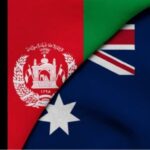


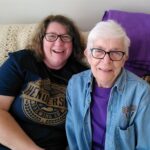
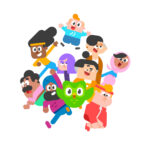
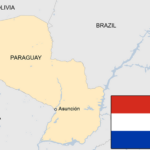
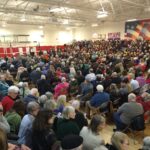

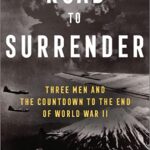


Leave a Reply